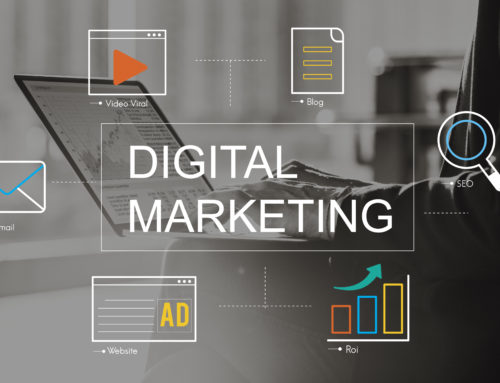NOTE: It’s important to tailor a PPC campaign to your specific requirements in order to achieve the best results. This post serves as a guideline for PPC campaigns for the legal industry.
Every law firm that takes client acquisition seriously understands the necessity of an excellent digital marketing strategy, especially one that involves effective PPC campaigns. The right PPC campaign strategy can ensure that you arrive at a good cost-per-acquisition (CPA). But getting it right depends on which agency you’ve hired to help you. At Legal Marketing & Technology Solutions, our in-depth expertise in PPC campaigns and digital marketing has helped firms both meet and exceed their growth goals year over year.
KPIs and reporting are a very important aspect of our PPC efforts. Depending on your practice area and geographic targets, your CPA may vary. But an analysis of several campaigns across various industries has revealed that there are certain standard features in KPIs, irrespective of industry. That being said, law-related keywords are becoming more expensive, and of course, competitive. This has made lead generation via AdWords quite difficult.
Marketing is becoming more complicated by the day; it doesn’t matter where you are or what type of business you manage. For law firms, however, the complexities are even greater. The UK has even put rules in place to prevent unwanted pitches via telephone or in person. With these kinds of limitations, it’s understandable why PPC is a crucial channel for law firm marketing. But the competitiveness is due to the simple fact that there are too many firms and not enough real estate on the first page of Google.
Standing out of the crowd is not impossible. But it does require that you conceptualize and execute an excellent PPC campaign that will get you the expected leads without harming your ROI. And this is precisely what we offer at Legal Marketing & Technology Solutions.
This guide outlines 7 techniques that are crucial to getting the desired results from your AdWords campaigns. If properly implemented, these tactics are guaranteed to help you target and attract the ideal clients for your law firm.
Let’s take a look:
- Focus on the Right Regions
Defining your geo targets is a vital first step to setting up a good PPC campaign. Yes, keywords are vital to your PPC campaign, but targeting the right regions is more important. If you don’t, you may end up coming up in searches from the wrong states and cities.
Targeting the wrong region is like presenting the best services to the wrong clients. How do you avoid doing this? First, set your target regions correctly:
- From your AdWords menu, locate the SETTINGS area and select your campaign.
- After that, set your LOCATIONS.
- Then click on ADVANCED SEARCH, and in the next pop-up box, choose the RADIUS option.
- Now you can input a geographical location and set the target radius around such locations. You can either create one target radius per each location or set up multiple target locations to a single campaign. However, the former offers more flexibility in linking your ad creative to your target audience.
Another vital but often overlooked factor is the time of the day you advertise. For best results, law firms should avoid running ads on weekends. Mondays should be the priority.
- Concentrate on Search Intent
Keywords vary in prominence, and it all depends on what the user is interested in. In the case of law firms, the search intent is either INFORMATION or QUICK SOLUTION. Understanding this will help you adjust your ads to be in line with a specific intent. These adjustments cut across your ad copy, landing page, and other content.
Below are the 3 main categories of intent:
- Transactional – when the searcher wants to make a purchase. Keywords here are usually with high commercial intent.
- Navigational – when the searcher is interested in a brand or specific website. This is the same as BRAND SEARCHES.
- Informational – the searcher seeks an answer to a certain question; for instance, a detailed guide on how to solve a problem.
Transactional keywords (i.e. “divorce lawyer in Georgia”) are usually the most searched, and thus the competition is always higher. On the bright side, these keywords are also very profitable. Users are looking to get helpful information on a certain problem, which could possibly be solved with good content.
An example is “how to find a divorce lawyer in Georgia.” This keyword indicates that the searcher lives in your target area (Georgia in this case) and is a great potential client for your firm. To attract a potential client, you could either create content that answers their question or an ad the encourages them to schedule a consultation.
Your conversion techniques will come in handy here to obtain the prospect’s information. Once you have this, you can then employ automated email marketing strategies to keep the relationship going. Automated emails will keep your firm top of mind as the prospect goes through the process of deciding which firm to retain, thereby increase your chances of signing the prospect.
Clients are the biggest stakeholders in the picture – their money, reputation, or freedom is always on the line. So, you can only create healthy relationships by providing them with educational content that serves their needs.
Take advantage of the lack of proper client education. Research broad keywords and target them. When you find informational keywords, tailor your content to answer them, while separating informational keywords into different ad groups. This is sure to improve your Quality Score (QS) and lead generation.
- Make Your Ad Copy Irresistible
It’s important to get your ad copy right. Your targeting will only yield results if you back it up with compelling ads to the right searchers. This will convince them to click on the ads and subsequently visit your landing pages.
This isn’t as easy as it appears, considering that several competitors are trying to get the attention of the same clients through ads. To stand out, here are some copywriting tips that can make the difference in your PPC campaigns:
- Start Right
AdWords copywriting can be a bit tricky, especially considering you have a limited number of characters to use in your ads. Working within the character limits to create compelling ads requires creativity and talent. Below are some basic concepts you want to keep in mind before creating your copy:
- Ensure that your ad copy is RELEVANT. This involves matching your target keyword to your landing page message in your ad copy. This guarantees you an excellent QS.
- Make the copy about the clients. Yes, it’s good to talk about yourself, but the priority must always be the client. So, use more “you” and less “we” in discussing client pain points and needs.
- Highlight the benefits. Make sure the person understands what they are getting, and give them compelling reasons to work with you.
- Use Numbers
As a reputable law firm, there is no doubt that you have made excellent progress with your clients. Now it’s time to use these impressive statistics to convince your potential clients that they should hire your firm. When used correctly, this data can make your ad copy more compelling to prospects.
Start with the headlines. Get some numbers in them. In your ad copy, include statistics – like the number of clients, years in business, the number of cases won, and your average win-rate. Note that some regions may restrict the type of information you can include in your ad copy. For instance, some provinces in Canada don’t allow firms to include their win rate in ads. The rule is more relaxed in the United States. So check to make sure that you are not disregarding any rule(s) with the type of statistics you include in your ad copy.
- Key-In Important Questions
Searchers tend to want answers to their questions and solutions to their problems. You can expertly rephrase commonly asked questions and make them your headlines. This grabs potential clients’ attention and makes them want to know more, thereby lead them to click the ad.
The reason this works is because these questions are likely already on searchers’ mind before they launch their search, and the moment they see something similar in a headline, they’re likely to click on the ad. For example:
- “Are you considering divorcing your partner?”
- “How to choose a divorce attorney”
- “Do you need to talk to a divorce attorney?”
Above, we discussed “informational” searcher intent. These headlines are great for this purpose.
- Employ Emotional Triggers
Despite the limitations, AdWords copy allows you to grab attention by triggering emotions. With the right content, you can reach deep into your potential client and trigger a feeling that is relevant to the challenge(s) facing them at that moment. Proven emotional triggers are listed below:
- Trust. You need to convince your prospects that you are reliable, credible, and dependable. Tailor your PPC ads and your landing pages to highlight your trustworthiness.
- Value. Everyone wants the best value for their money, and buyers try hard to avoid buyer’s remorse. So offer a guarantee alongside your services or a special offer that sets you apart from your competitors.
- Instant Gratification. While it may take a while to achieve the desired results, prospects in the legal industry still want instant gratification. You can make your ad copy ease their current woes, thus convincing them of your ability to help them get results in the long run.
- Hope. Sometimes, the only thing that keeps a prospect going is hope. And when they find someone that offers them a “brighter” future, they’ll take it willingly.
- Fear. Decision making is a process, and it is often driven by fear. You can take advantage of this by showing prospects why and how your service is the right way to go. Help them find peace in what you offer.
- Do Tests and More Tests
It’s practically impossible to integrate all of the elements discussed above into one ad. Instead, you can combine a few of them in different ads and test them against each other. How do you this?
- Visit your AdWords campaign menu.
- Locate ADS & EXTENSIONS, and click the PENCIL ICON that is closest to your best performing ad copy.
- From the options, choose COPY AND EDIT.
Now you can change some elements of your ad. This feature allows you to test various ads against each other. You can set them up from the DRAFTS AND EXPERIMENTS tab.
Once the AD VARIATIONS tab loads, select NEW AD VARIATION and follow the wizard prompts to apply the new variation to your selected campaign. Changes like text replacements, switching headlines, and updating whole sections of your copy can be done quickly using this feature.
For best results, test only one element at a time – either headline or call-to-action, but not both.
- Creating Landing Pages That Convert
Now that you have put up compelling and irresistible ad copies, you should move on to putting a proper landing page in place. After all, when your prospects click the ad, it will take them to the landing page.
What is the goal of a landing page? To convert potential clients. So, design it to convince a visitor to take action.
It’s only when your landing page is designed to convert that you can drive traffic to it. And considering how expensive keywords are, getting as many leads as possible from these clicks is crucial.
Below are 5 must-have elements for your landing pages if you want to generate an impressive number of leads for your law firm:
- Get Rid of Navigation Planes: The fewer the distractions, the higher your chances are of your prospects taking the desired action. One major distraction is a navigation plane that allows them to browse the website. So one way to increase your chances of conversion is to get rid of it.
- The “Hero Shot”: The “hero shot” is obvious visual content that allows the visitor to see what you offer at first glance. Getting a hero shot is easier if you’re selling a product, but it requires creativity if you’re offering services. And sometimes, a hero shot that’s in line with your services may be difficult to come by.
- Use Videos: If you’re finding it difficult to provide a visual with images, look to video content. A good video can build trust immediately. It allows you to present your personality and showcase your expertise as a law firm. Make sure that your videos are short and simple. Explain clearly what you offer and what makes your firm outstanding.
- Include Only One Call-to-Action: Having more than one call-to-action on your landing page may end up confusing potential clients and hurting your chances of conversion. Usually, the one call-to-action is to fill out a form, and afterward, request a consultation or call-back or download a whitepaper. Make the layout simple and ask only for vital details. Ensure that the CALL-TO-ACTION button stands out from other elements on the page. Also, find out the best form length for your practice and stick to it. Prospects can get discouraged if the form is too long. To avoid this problem, don’t ask your prospects to submit irrelevant or overly personal information – only information that can generate leads.
- Build Trust With Testimonials: For a law firm, building trust can be a daunting task, especially when you’re trying to generate new leads. However, one of the easiest ways to give your prospects that extra push is to include testimonials from satisfied clients on your landing page. You can get this feedback from your clients, and while you’re at it, make sure that they’re very specific about what services they received, how their challenges were solved, and why they enjoyed having you as their law firm.
To prove the authenticity of these testimonials, try to include the client’s full name and a headshot when putting them on your landing page. You don’t want your prospects doubting whether the reviews are real or not.
- Include Call Extensions
Commercial intent keywords are very lucrative. You may come across desperate prospects that are looking to speak to someone immediately. You can take advantage of their desperation by including call extensions in your ads. These are calls-to-action that are found immediately after your ad when the search is done on a mobile device. The moment a user clicks on this extension, the number you added to the extension is automatically dialed on their device.
Setting up a call extension is quite easy. From your AdWords menu page, locate ADS & EXTENSIONS and click the EXTENSIONS tab. Proceed to click on the blue PLUS button, and then CALL EXTENSION.
The next page provides you with several options to set up your call extension. Here are the basics of the setup process:
- Add To – Choose the ad group or campaign that you want the extension to work with.
- Extension – Choose CREATE NEW.
- Country and Number – Check the drop down and choose your country of residence, then input the phone number through which you can be reached.
- Call Reporting – Using this option, you can set the call duration and quantity.
- Device Preference – If you want to restrict the extension to mobile ads only, check MOBILE. If not, leave it unchecked.
While you can choose to make a few other changes from the other options, it is advisable that you leave them as is. Upon applying the extension to a certain ad group, you’ll find the attached under your ad, as an option to call, whenever you search on Google.
Now your clients can reach you faster and more easily.
- Analytics & Call Tracking
By now, the AdWords campaign for your law firm should be up and running. Well, it doesn’t stop at that. It is important that you continue to monitor your progress, and ultimately determine if your PPC is generating the best ROI possible.
You will most likely get more inquiries via phone calls. It’s therefore advisable that you employ Google Analytics and Call Tracking as your most preferred forms of tracking.
You can link Google Analytics (GA) and AdWords on your GA account:
- Locate the ACQUISITION option on your GA Account, and choose ADWORDS, then CAMPAIGNS.
- On the wizard, click GET STARTED and follow the steps to finish up the linking.
- When you have completed the process, go back to the CAMPAIGNS tab, and you will see your AdWords data displayed.
Call tracking checks the source of your calls (where they come from), the duration, and the quality. Based on your location, there are a couple of options out there.
Although Google Analytics and Call Tracking are not the same, the basic principles are quite similar. In both systems, there is a “dynamic” phone number that is added to your website. Each visitor gets to see a different phone number, which is usually picked randomly from a collection of available numbers. The call goes through the calling tracking system once the number is dialed. The system then records the source of the call – PPC, organic search, or others – the duration, and the call itself. This is a reliable method for assessing team performance.
Both Analytics and Call Tracking are proven methods for keeping tabs on your AdWords efforts as the campaign runs. You can test new ad copy, create ad groups for each of the best performing keywords, and enhance your landing pages to ensure the best conversion rates.
- Advanced Law Firm PPC Techniques
What we have discussed from #1 to #6 are the basics of creating and executing a productive law firm PPC strategy. However, before we conclude this piece, let us take a quick look at two advanced techniques. When employed, they are sure to ensure a better and more optimized campaign, and of course, improved ROI.
- Removing Competitor Clicks
There are good chances that your competitors are also monitoring you, just like you are them. So, like any other user, they search for the name of your firm on Google and probably click on your search ads too. If this persists, it might make your campaign ineffective, and waste your resources. After all, your competitors are not your ideal clients. However, with this technique, you can prevent this.
Start by locating their IP address. How? Simply sign up for their email list, then assess one of their newsletters via Gmail. Click the drop-down and select SHOW ORIGINAL.
Press Ctrl+F and search for “Received: from” in the source. You will be presented with the IP address used in sending the mail. Now, the next step is to exclude the IP from your campaigns. You can do this under the SETTINGS tab of your AdWords campaign. Click on ADDITIONAL SETTINGS → IP EXCLUSIONS. Now, punch in the IP addresses of your competitors in the text box containing the inscription “Enter one IP address per line.”
Although your competitors will still be able to click on your ads, you won’t be paying for such clicks.
- Increase your Quality Score by Optimizing Your Headlines
There are a couple of vital PPC factors that must be optimized for the best results, and Quality Score is one of them. When your QS is higher, your CPC will be lower while your CTR will be higher. To optimize your QS quick and easy, work on your headline. Here are some useful tips in this regards:
- Add the Keyword. This can be done by creating a different Ad Group for each of your best keywords. Then add the target keyword to your headline.
- Embrace proper punctuation. Without violating AdWords best practices, you can use punctuation to your advantage, especially to ensure that your copy remains well-organized when the first line starts immediately after your headline.
- Stay updated. Use headlines that are recent; they grab prospects’ attention easily. For instance, add your success rate for the past month.
- Add your location. In addition to your keywords, include your target region or city. For best results, create different ad groups for each of your target locations.
Note that you can only get the best QS when you have ensured that all other aspects like ad copy, target keywords, and landing page are already settled. However, optimizing the headline tends to be easier and more rewarding.
A quick recap…
Let’s conclude this article by reviewing the six steps to create a more profitable AdWords campaign, and ultimately winning over more prospects for your law firm.
#1: Focus on the right regions
If you are not attracting the right traffic, your campaign might have failed before it even started. So, attract the right traffic by first setting up your geo-targeting to ensure that your ads are directed to the cities and regions that you serve
#2: Selecting the right keywords
You may find out that the first set of keywords you target brings no return. However, maintain the same accuracy, and fine-tune your geo-targeting by using specialized keywords as well as intent search keywords.
#3: Setup Separate Ad Groups
To minimize cost and get maximum traffic, ensure that you optimize your Quality Score (QS). To do this, make your keyword, and ad copy highly relevant by setting up ad groups for each of our best performing keywords.
#4: Create compelling and irresistible ad copy
You are not the only law firm that comes up when a prospect search for your target keywords. So, to be at the forefront, you must create an ad copy that addresses their needs impressively.
#5: Use Ad Extensions
These are add-ons that offer more information or more actions for your potential clients to take. For instance, call extensions make it easier and faster for potential clients to reach you.
#6: Optimize your landing pages to increase conversion
If your prospect clicks your ad, and your landing page is not convincing enough to make them take that decisive step, then you haven’t achieved your aim of converting such prospects. To optimize your landing pages, create an ad copy that converts, a strong call-to-action, and captivating headlines.
Lastly, tailor your campaigns to turn prospects into clients by addressing their challenges, while educating them, and more importantly, gaining their trust.
Taking the step…
Yes, this guide is quite simple and straightforward, and if followed correctly, you can conveniently use AdWords to improve your practice. However, if you find any step challenging or even the whole process, feel free to reach us at Legal Marketing & Technology Solutions. As a reputable PPC and digital marketing experts, you can rest assured that we will help you get the desired results from your PPC campaigns.
If you are already on the AdWords campaign journey, share your experience so far in the comments below.
Good luck!




